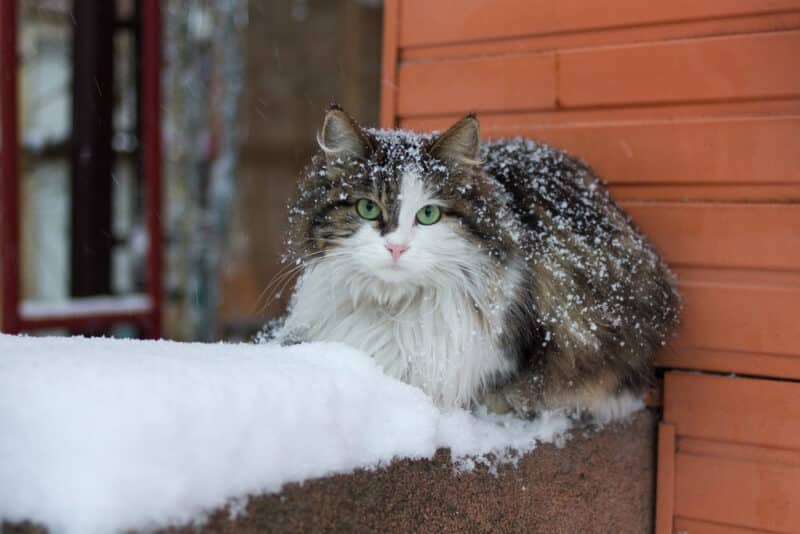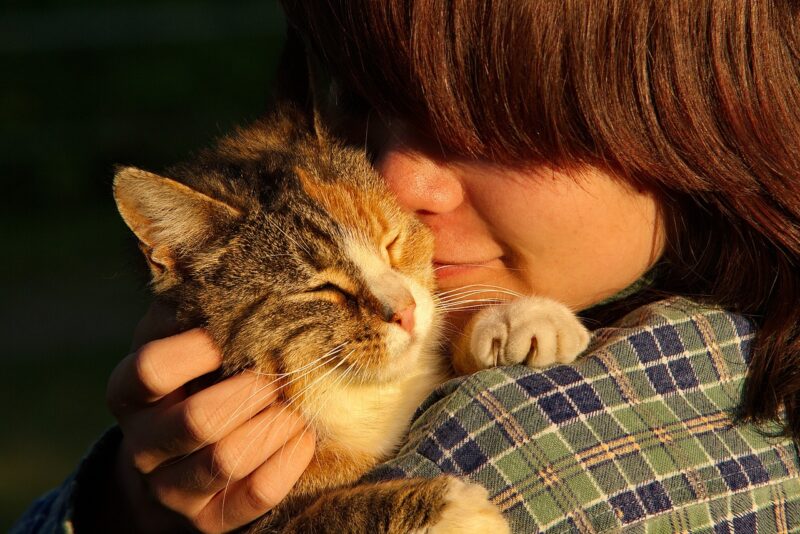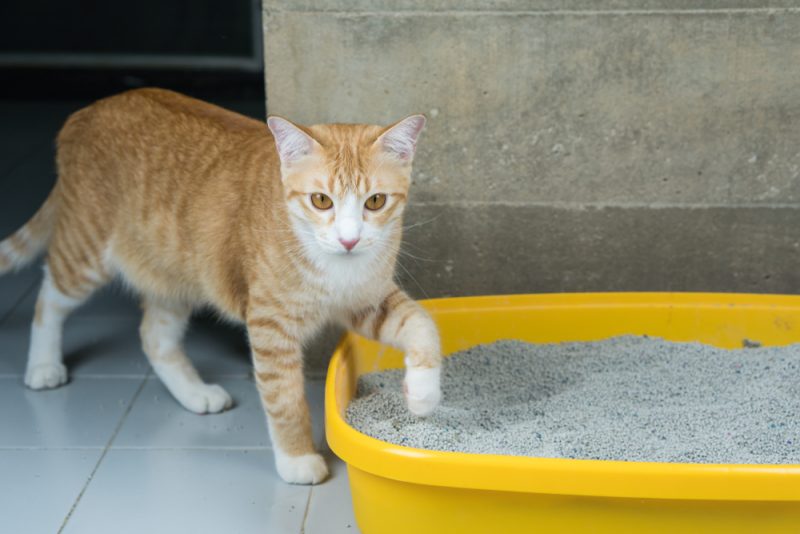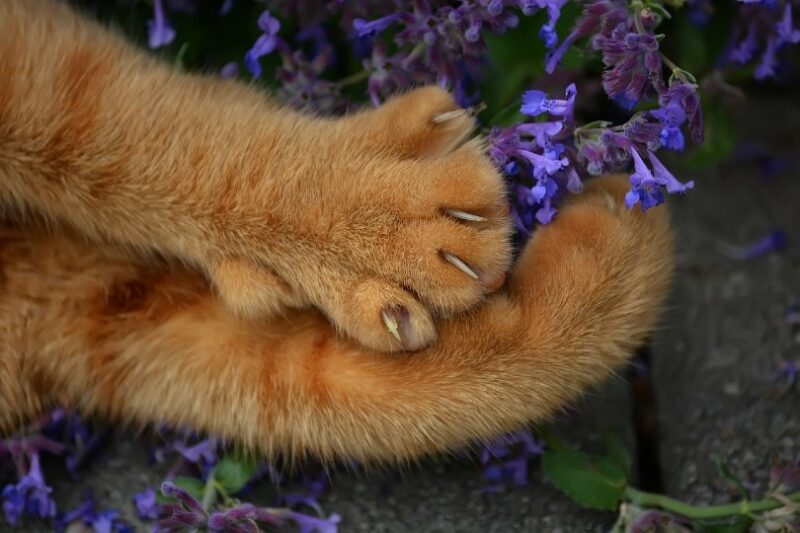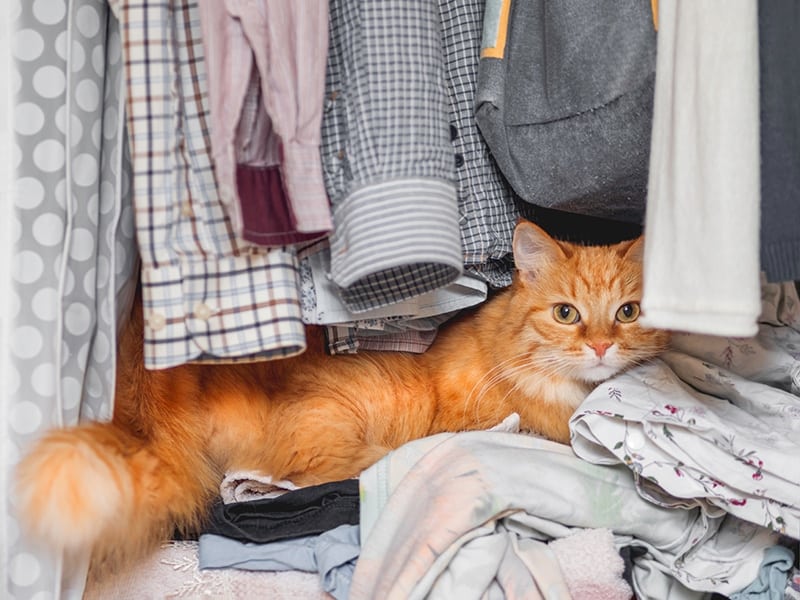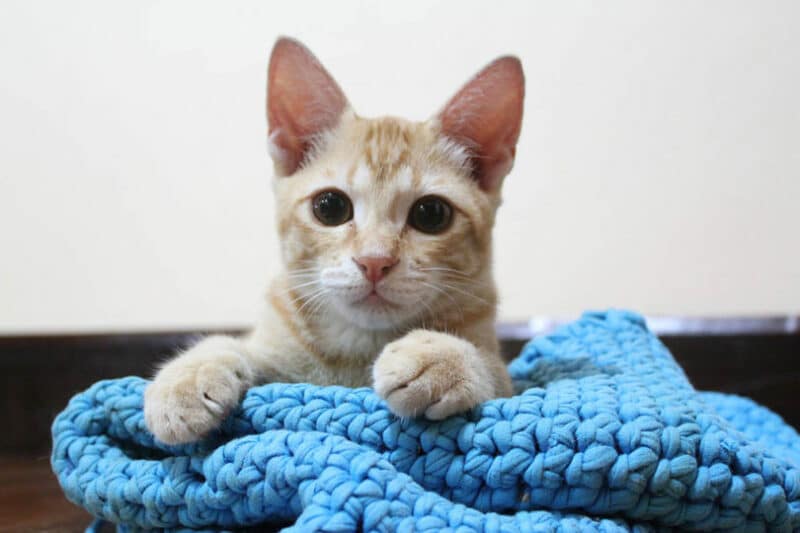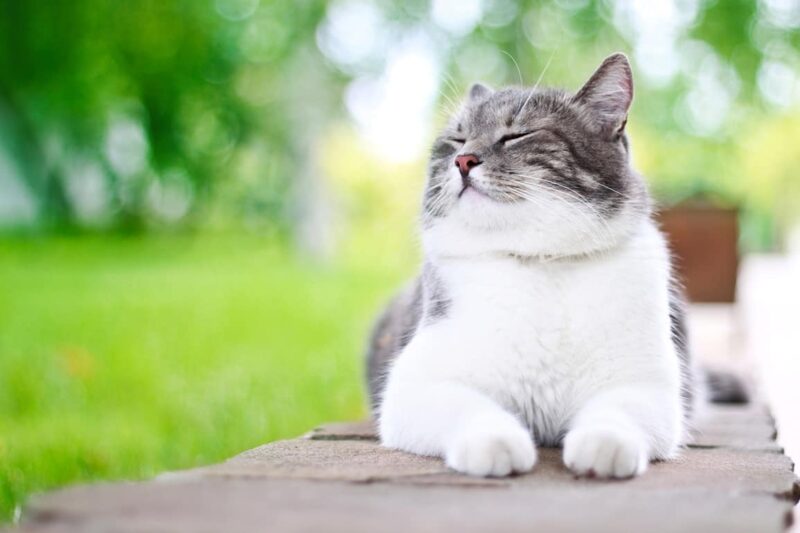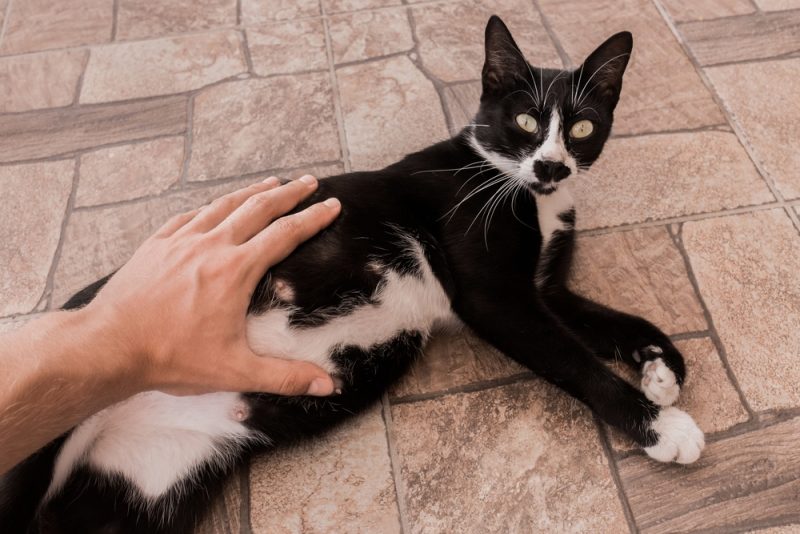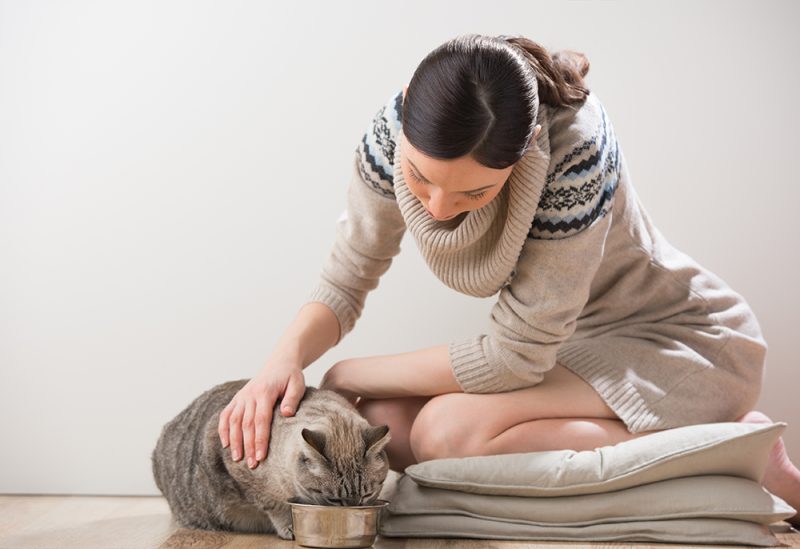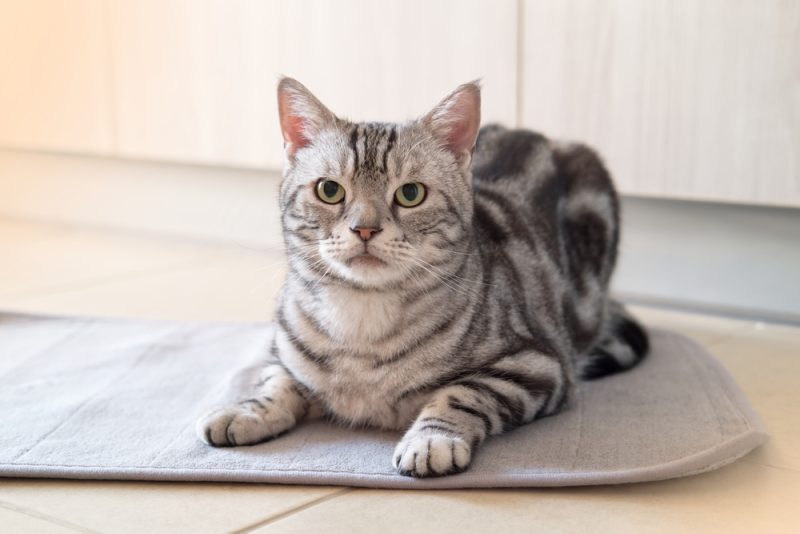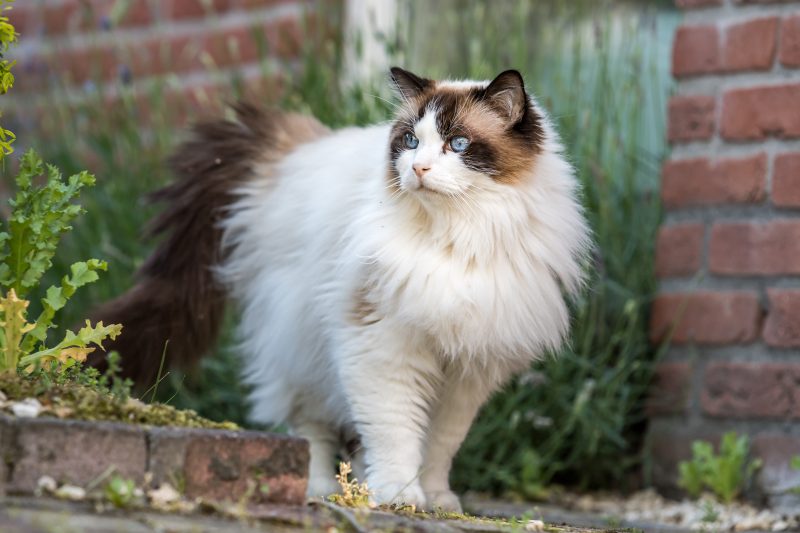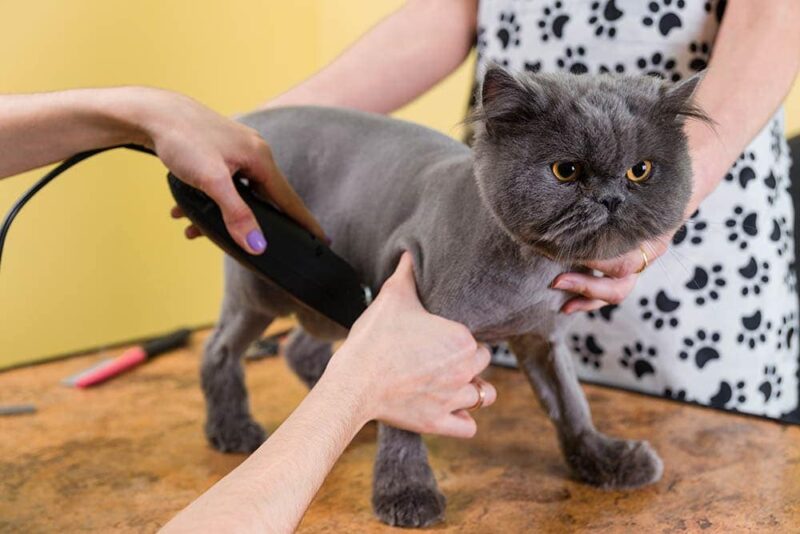In this article
Most cats are covered in hair, which helps protect them from environmental elements. It certainly helps warm us up when we’re cuddling with them! So, it seems like felines should do well in cold environments. Perhaps they can even live outdoors in the rain and/or snow.
The big question is: Do cats like the cold? Cats have varying degrees of cold tolerance depending on factors such as their age, breed, and health status. However, all cats are susceptible to issues involving low environmental temperatures. Here’s what you should know.

Do Cats Even Get Cold?
The short answer to this question is yes, cats can and do get cold. The optimum ambient temperature for most cats is 77–86°F (25–30°C). Most healthy adult cats with a fur coat can tolerate lower temperatures between 50–65°F (10–18°C). Even at these temperatures, you may notice that your kitty looks for a warm place to snuggle up and keep warm.
Some cats are more susceptible to the cold than others. Examples of such cats are as follows:
- Breeds with no hair or sparse hair, such as the Sphynx, have poor cold tolerance. Conversely, double and triple-coated breeds have the best cold tolerance among cats.
- Cats that are underweight or unwell likely cannot tolerate the cold as well as healthy cats in an ideal weight range.
- Some senior cats may struggle to keep warm as temperatures drop, especially if they have a medical condition that impacts their metabolism.
- Cats with osteoarthritis usually don’t appreciate colder temperatures.
- Pre-weaned kittens (under 2 months of age) cannot tolerate low temperatures. They have strict temperature requirements depending on their age.
- Cats with a large area of their fur missing (shaved or missing due to an illness) may be unable to keep warm, as fur plays a major role in thermoregulation.
- Cats have poor temperature tolerance when wet, such as right after a bath, and will not tolerate cold temperatures well if they are wet.
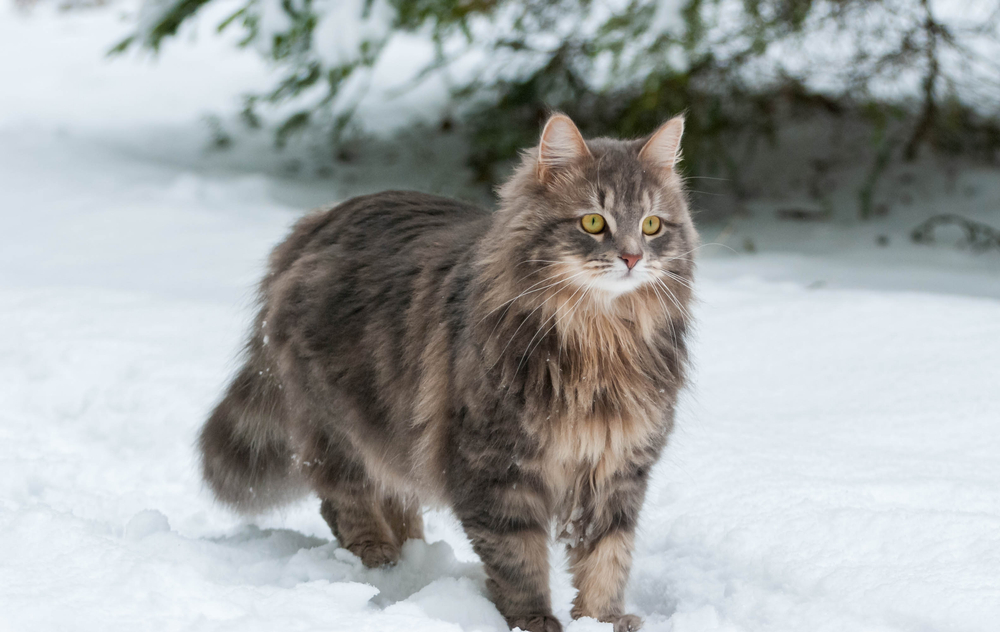
Do Cats Like the Cold?
Some cats don’t seem to mind colder temperatures, while others don’t seem to like being in chilly weather at all. It depends on the cat and their circumstances, experiences, and lifestyle. A cat with long, thick hair that is used to being outside may enjoy frolicking in the snow for a little while before they’re ready to curl up in front of a fire to warm themselves. Conversely, a cat with less hair might do whatever they can to stay out of the cold! It’s not necessarily a matter of whether cats like cold weather, but more about how much they’re willing and/or able to put up with it.
In essence, a cat that’s comfortable with the ambient temperature may “like” the cold (as it wouldn’t bother them), whereas a cat that’s uncomfortable will not appreciate the cold. However, even a cat that seemingly enjoys the cold might be susceptible to issues such as frostbite.
During the winter, pet cats often see a reduction in play time and activity, an increase in food intake, and an increase in sleep time. In seasonal locations, cats shed less during the winter.

How to Tell if Your Cat Is Too Cold
Cats have some telltale signs that can hint that they’re feeling a bit too cold:
- Seeking warmth: A cat that’s cold will seek out warm spots, such as a couch, bed, or even your lap. This can sometimes be concerning as cats are known to seek unsafe sources of warmth, such as the laundry room dryer.
- Body language: A cold cat will often sit with their limbs held very close to their body, their tail wrapped around their body, and their fur slightly raised. If this doesn’t help, they will eventually begin shivering
- Cold extremities: A cat that’s cold will often have ear tips, toes, and a nose that are cold to the touch. This is because their blood vessels constrict when they are feeling cold.
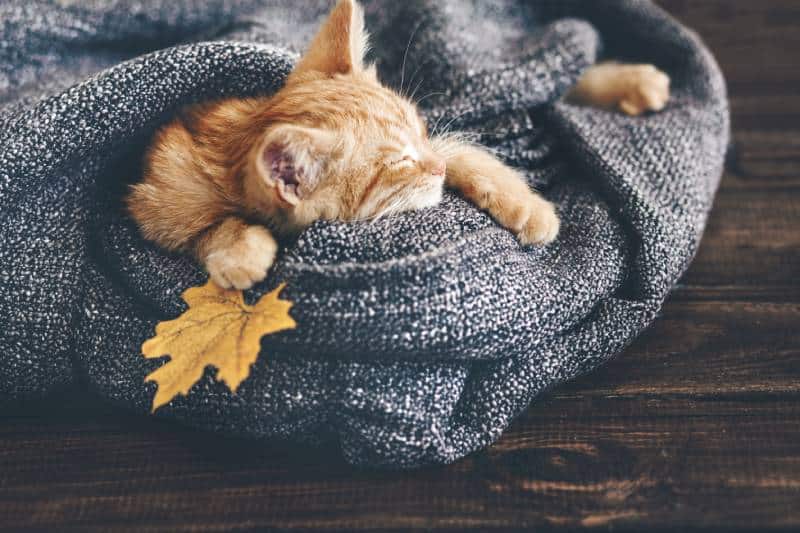
How to Keep Your Cat Warm in the Winter
There are several things that you can do to help keep your kitty warm during the winter season.
- Move their bed, cat tree, food bowl, and litter box away from drafts or colder areas (such as a tiled floor)
- Utilize pet-safe heated blankets and beds. Ensure that your cat doesn’t have access to their wires.
- Snuggle with your cat. Snuggling with your cat helps your cat stay warm
- Reconsider their nutrition. Consult your vet about your cat’s nutrition. In the winter months, cats have increased metabolic needs to keep warm and therefore require more food. However, this should be done with caution, as overfeeding your cats isn’t healthy.
- Install a cat door. If your cat is allowed outdoors safely (for example, in a catio), consider installing a cat door, which allows them to re-enter your house for warmth whenever they want to.
- Restrict outdoor activities. As a general rule, unsupervised roaming is risky for cats and their environment. The colder months pose an additional weather risk, and for their own safety, cats shouldn’t be allowed outside unsupervised under such conditions.

Frequently Asked Questions
How Cold Is Too Cold for Cats?
The lowest temperature healthy adult cats can handle is around -4°F (-20 °C). However, they will not be comfortable in this temperature. Temperatures below 50°F (10 °C) are considered too cold for cats.
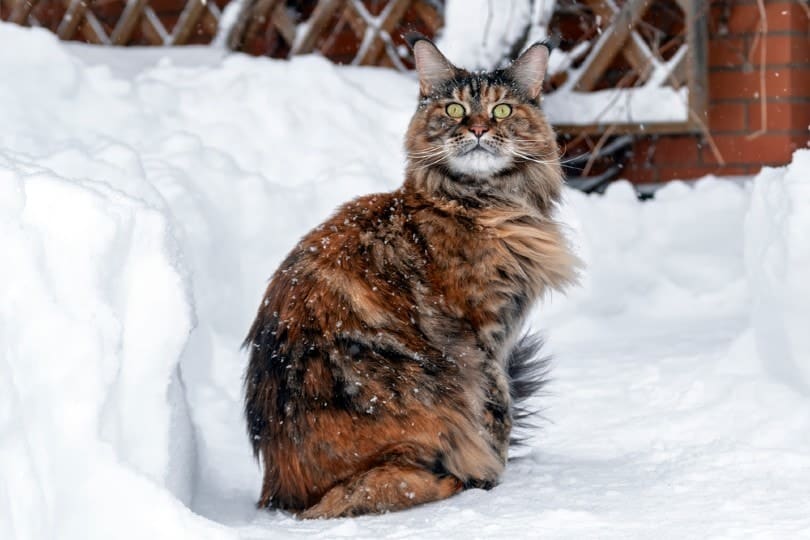
Can Cats Survive Outside in the Cold?
It depends on the circumstances whether a cat can survive outside in cold or freezing temperatures. If a feline has access to a warm space that protects them from wind, rain, or snow, they may be able to stay warm enough to survive. However, there is no guarantee that they wouldn’t succumb to cold or other factors and circumstances they have to deal with during the winter. To date, no studies have been conducted to ascertain the survival rate of feral or stray cats through the winter.

Conclusion
Cats can get cold, and it’s our job as their caretakers to make sure they have every opportunity to get and stay warm during the winter months or whenever the temperature gets chilly. The good news is that there are plenty of things that you can do to keep your furry family member warm and even help out the less-fortunate cats that are living on the street.
Featured Image Credit: melnikof, Shutterstock
